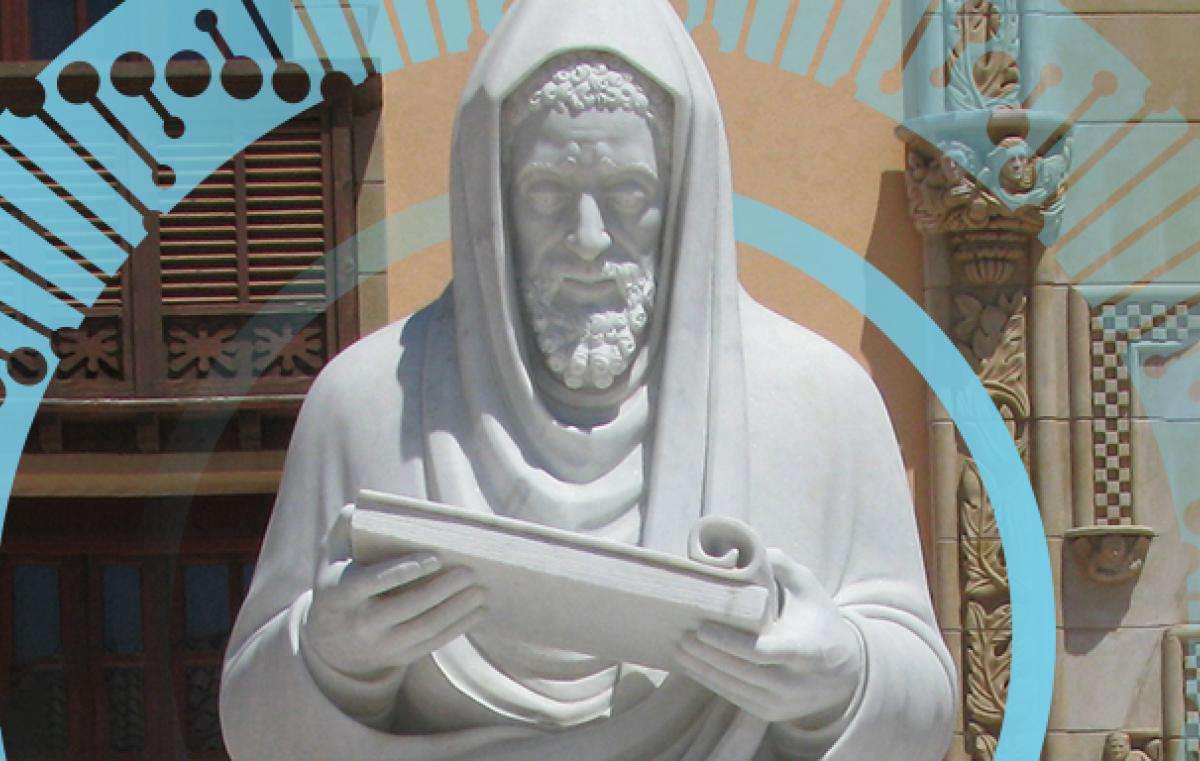Judah Halevi
Marking 881 years since the passing of Rabbi Judah Halevi, Prof. Shmuel Refael, Dean of BIU’s Faculty of Jewish Studies and Director of the Salti Institute for Ladino Studies, writes about this great Hebrew poet in Spain

The story of the “birth” of the famed medieval Spanish Jewish philosopher and poet, Judah Halevi, is fascinating. Judah Halevi, or Abu al-Hassan al-Lawi, as he was known in Arabic, is the prolific author of religious and secular poetry and the man who penned the profound philosophical work, known as the “Sefer ha-Kuzari.” He was born some time before 1075 in Christian Spain, in a city whose name we do not know. Spending his early childhood years in Christian and culturally backward surroundings, his heart was drawn to Jewish intellectual circles in Muslim Spain, the unrivalled center of literary culture and philosophy at the time. Judah Halevi was, of course, familiar with the ancient Spanish dialect, which combined Arabic with words from Roman (Latin) origin, but his command of the Arabic language also enabled him to adapt quickly in southern Spain.
As a young poet seeking to join the company of the leading intellectuals in southern Spain, he migrated to the Andalusian region. There, as was the custom of the time, groups of poets tried their hand at improvising poetic stanzas, especially Ezor songs that are very complex in terms of genre. Judah Halevi was invited by one of these circles to demonstrate his writing skills. His experience went well, apparently very well. He composed a laudatory poem in honor of Moses Ibn Ezra, which was even sent to his residence in Granada. The work of the young boy from Castile aroused the admiration of the esteemed poet Ibn Ezra, who, in return, sent a poem to the young Judah Halevi, in which he expressed his admiration for the lad’s talent. Ibn Ezra even invited him to Granada and to reside in his home.
From now on the young poet’s path was paved. A friendship was forged between the two, and Judah Halevi remained loyal to Ibn Ezra until the day he died. Judah Halevi joined the literary circles in Granada and his friends included Judah Ibn Ghiyyat, the son of the poet, Isaac ibn Ghiyyat. Judah Halevi’s days in Granada shaped his works.
After 1090, when Barbarian legions took over Granada, Judah Halevi was forced to leave the Muslim state. He returned to the Christian area of Castile, settled in Toledo, and made a living as a physician. It is probable that he studied the profession while residing in Andalusia. His attraction to Hebrew literary works never ceased, and although he migrated from one place to another, and earned a meager living, he did not cease writing poetry. Judah Halevi left behind a rich corpus of religious and secular, philosophical and personal poems, and the best known of them all is “Tzion haloh tishaeli” (Oh Zion, will you not ask”).